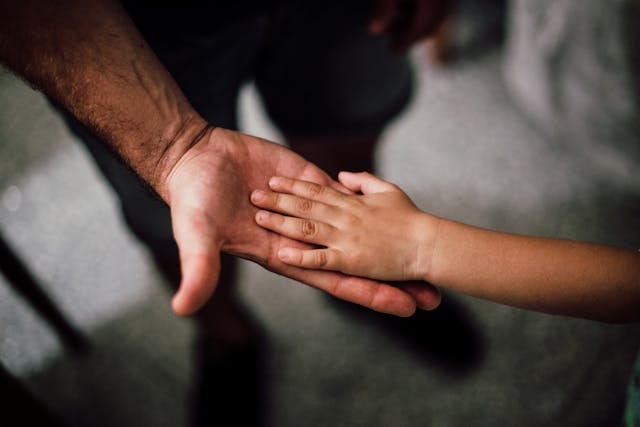How to Talk About Family in Portuguese
In Portugal, the family holds a central place in the social fabric. Portuguese culture is deeply familial, with close-knit relationships often extending beyond the nuclear family to include a wide circle of relatives and even close family friends. This importance placed on family means that conversations about family members are not just common but are also seen as a fundamental way to connect with others.
When interacting with locals, inquiring about their families or sharing stories about your own can be a wonderful way to move beyond simple transactional exchanges. Discussing family life not only shows respect and interest but also helps in building meaningful relationships, paving the way for deeper cultural immersion.
Here is some essential vocabulary to help you talk about family in Portuguese.
→Sign Up Now: Free Trial Portuguese Lesson With a Native Teacher!←
Saying “Mother” in Portuguese
Mãe
This is the most common and straightforward translation for “mother.” It is used formally and informally in most conversations.
Mamãe
A more tender and affectionate term, often equivalent to “mommy” in English. It’s commonly used by children and adults alike when speaking fondly of their mother.
Mamã
Similar to “mamãe,” this term is also affectionate but slightly less diminutive than “mamãe.”
Mãezinha
An endearing term that translates to “little mother.” It’s often used to express extra affection and closeness.
Common phrases to ask about mothers might include:
- “Como está sua mãe hoje?” (“How is your mother today?”)
- “O que sua mãe gosta de fazer no tempo livre?” (“What does your mother like to do in her free time?”)
- “O que a mamãe preparou para o jantar?” (“What did Mum cook for dinner?”)
- “Sua mamãe vai vir nos visitar este fim de semana?” (“Is your Mum coming to visit us this weekend?”)
Saying “Father” in Portuguese
Pai
This is the standard word for “father” in Portuguese, used in both formal and informal contexts.
Papai
Equivalent to “daddy,” this term is affectionate and often used by children or when talking about one’s father in a loving way.
Papá
Similar to “papai,” but it might be seen as slightly less formal. It’s commonly used in everyday conversation.
Painho
A term used predominantly in some regions of Portugal, adding a familiar and endearing touch.
Common phrases to talk about fathers might include:
- “Meu pai trabalha como médico.” (“My father works as a doctor.”)
- “Papai, você pode ler uma história para mim?” (“Daddy, can you read a story to me?”)
- “Papá sempre faz o melhor churrasco.” (“Dad always makes the best barbecue.”)
Talking About Siblings in Portuguese
Irmão (plural: irmãos)
This is the general term for “brother” and is used in both formal and informal contexts. The plural form “irmãos” can refer to a group of brothers or mixed-gender siblings.
Irmã (plural: irmãs)
This is the term for “sister.” When speaking of several sisters, the plural “irmãs” is used.
Mano
A colloquial and affectionate term for “brother,” used primarily in casual settings among close friends or family.
Mana
Similar to “mano,” this is an informal and affectionate term for “sister.”
- Additionally, to describe relationships between siblings, you might encounter these terms:
Irmão mais velho / Irmã mais velha – These phrases mean “older brother” and “older sister,” respectively.
Irmão mais novo / Irmã mais nova – These translate to “younger brother” and “younger sister.”
Talking About Children in Portuguese
Filho (plural: filhos)
This is the word for “son” or “sons,” and can also refer to children in general, especially when mixed gender is implied.
Filha (plural: filhas)
This word is used for “daughter” or “daughters.”
Criança
Used for “child,” this term is gender-neutral and applicable in most general contexts.
Bebê
Meaning “baby,” this term is used when referring to infants or very young children.
When asking about children, you might use phrases like:
- “Você tem filhos?” (“Do you have children?”)
- “Quantos anos tem seu filho?” (“How old is your son?”)
- “Sua filha vai à escola?” (“Does your daughter go to school?”)
Portuguese Vocabulary to Talk About Grandparents and Grandchildren
Avô
This term is used for “grandfather.” It is pronounced as with a stress on the final syllable and the “o” sound is closed, similar to the ‘o’ in “go”.
Avó
This is the word for “grandmother.” It is also pronounced with the stress on the final syllable, but the “ó” sound is open, more like the ‘o’ in “pot”.
Avós
This plural form means “grandparents.”
Neto (plural: netos)
“Grandson” or “grandsons.”
Neta (plural: netas)
“Granddaughter” or “granddaughters.”
Netos
A gender-neutral or mixed-gender plural term for “grandchildren.”
Common phrases to discuss grandparents or grandchildren might include:
- “Meus avós moram comigo.” (“My grandparents live with me.”)
- “Tenho três netos.” (“I have three grandchildren.”)
- “A avó dela é muito carinhosa.” (“Her grandmother is very affectionate.”)
The In-Laws in Portuguese
Sogro
This is the term for “father-in-law.”
Sogra
The word for “mother-in-law.”
Cunhado
This means “brother-in-law.”
Cunhada
This is used for “sister-in-law.”
Genro
The term for “son-in-law.”
Nora
Common phrases to discuss these family members might include:
- “Meu sogro gosta de pescar.” (“My father-in-law likes fishing.”)
- “Minha nora é professora.” (“My daughter-in-law is a teacher.”)
Other Family Related Words in Portuguese
Beyond the immediate nuclear family and in-laws, Portuguese language encompasses a variety of terms for extended family members. These are crucial for engaging in more detailed family-related conversations:
- Sobrinho – “Nephew”
- Sobrinha – “Niece”
- Primo – “Cousin” (male)
- Prima – “Cousin” (female)
- Tio – “Uncle”
- Tia – “Aunt”
Common phrases to discuss these family members might include:
- “Minha sobrinha vai começar a escola este ano.” (“My niece is starting school this year.”)
- “Tenho muitos primos.” (“I have many cousins.”)
Embracing Family Through Portuguese
Understanding and using the rich vocabulary related to family in Portuguese is not only a linguistic achievement but a gateway to deeper cultural immersion. Whether you’re planning to visit Portugal, connect with Portuguese-speaking relatives, or simply expand your linguistic horizons, knowing how to discuss family ties can enrich your interactions and provide insight into the values that are central to Portuguese-speaking communities.
At Language Trainers, we invite you to dive deeper into the Portuguese language and culture with us. Learning Portuguese from a native teacher offers invaluable benefits. Our native-speaking instructors bring the nuances of the language and culture directly to you, providing authentic examples and practical language use that go beyond textbooks.
→Sign Up Now: Free Trial Portuguese Lesson With a Native Teacher!←
Moreover, the convenience of our one-to-one teaching approach, available both in-person and online, ensures that your learning experience is tailored to your individual needs and goals. This personalised setting allows you to progress at your own pace, focus on topics that interest you—like family vocabulary or Portuguese slang—and overcome any specific challenges with the guidance of a dedicated teacher.
Start your journey to mastering Portuguese with Language Trainers and discover not just a new language, but a new way of connecting with the world. Whether you prefer to take a face-to-face Portuguese course in London or you prefer Portuguese online lessons, we’re here to support you every step of the way!


